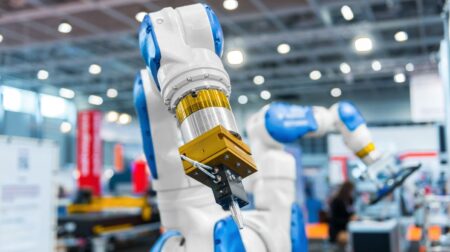An artificial intelligence (AI) researcher at The University of Manchester is co-designing a new AI-powered “supertool” to support accelerated research into combatting global challenges, particularly climate change.
Sami Kaski, professor in AI at The University of Manchester and an international team are in the process of developing what they term “virtual labs”, an AI-powered ‘research commons’ that will enable trusted digital research assistants to access a library of knowledge.
The idea behind the project is to support the development of communal solutions to global problems.
The virtual laboratories would reportedly support breakthroughs in diverse areas of study, from the development of new advanced materials to the design of new drugs.
Professor Sami Kaski said: “With the development of virtual laboratories what we are looking to do is to make sure that we don’t re-invent wheels as we just don’t have time to waste in meeting some of the big challenges ahead.”
“If relevant published knowledge already exists on computational research platforms or retained as academic ‘know-how’ – what we call tacit knowledge – it should be easily accessible so research teams worldwide aren’t separating developing the same solution, or have missed someone else’s eureka moment on what could be a critical area of research.
“In the future, new innovations will be made in virtual laboratories where researchers seamlessly operate with physical and virtual assets working in close collaboration with AI-powered research assistants to accelerate the pace of delivery while, at the same time, improving the quality of research.
“These virtual laboratories will be supported by a common software library.”
The device will be designed around the human-centric model of AI that Professor Kaski has been developing with a newly-established team of AI experts.
The international research team includes colleagues based in the Finnish Center for Artificial Intelligence (FCAI) and the UK, including the Alan Turing Institute.
Professor Kaski and his colleagues wish to ensure that “humans remains in the machine learning loop” by developing an intuitive form of AI that predicts the users’ behaviour and expectations, which aligns with the human cognitive concept called the Theory of Mind.
According to Theory of Mind, humans make assumptions about what others want, think and believe – these are then used infer these states of mind, despite them not being directly observable.








